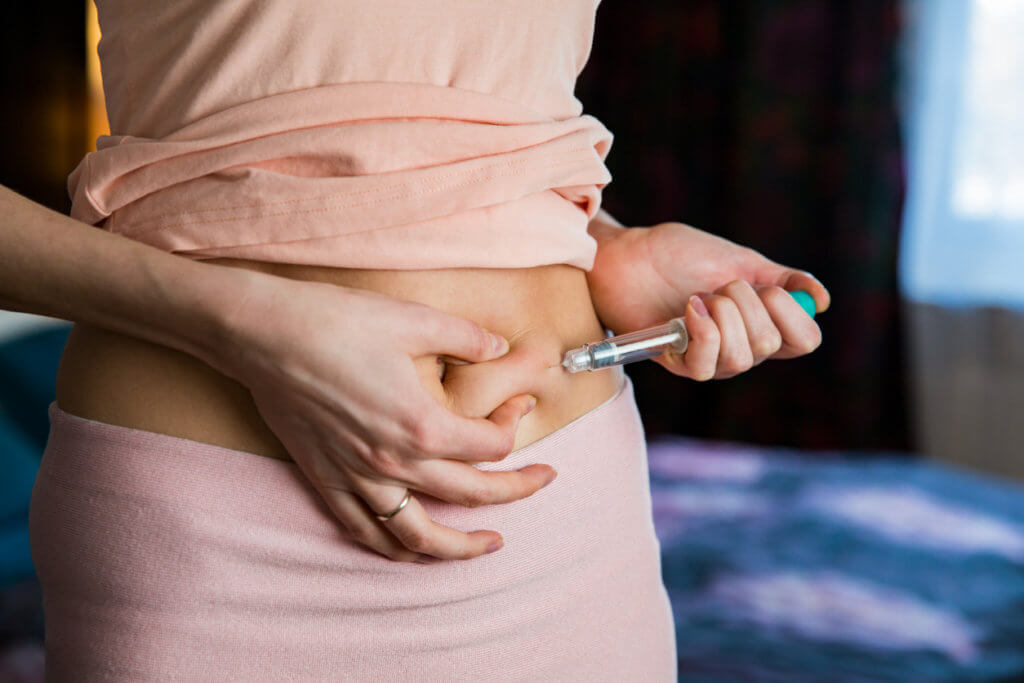If you or someone you love is dealing with infertility, you are not alone. According to the CDC, 12 percent of people have difficulty getting pregnant or carrying a baby to term, meaning that while the road to parenthood may seem straight and paved for some, it can feel unpredictably bumpy and taxing for others. Some fertility treatments like in vitro fertilization (IVF) — in which a person’s eggs are removed and fertilized outside of the body before being implanted into the uterus — require multiple rounds of injections a day to increase egg production. While it is not uncommon for the frequency and nature of IVF shots to feel daunting, two doctors who specialize in fertility shared some helpful tips and insight to help ease any nerves a future parent may have when embarking on a fertility journey.
How Painful Are IVF Injections?
According to Tiffanny Jones, MD, board-certified ob-gyn and reproductive endocrinology and infertility specialist, IVF injections are not as painful as one may think. “The injections are relatively painless due to how small the needles are,” Dr. Jones said. “Most of the apprehension comes from anxiety.” In fact, according to fertility expert, virologist, and author Cindy M. Duke, MD, PhD, FACOG, of the Nevada Fertility Institute in Las Vegas, the needles used to administer IVF fluid are designed to be as pain-free as possible. “A lot of research has gone into designing the needles,” Dr. Duke said. “Consequently, the needles are very tiny and are intentionally designed to provide minimal discomfort to the patient.”
The shots are administered in the belly region for both ease and efficiency. As Dr. Duke explained, most medications are administered via the fat layer under the skin. “The belly is the easiest way for someone [to inject] themselves.” And while it may seem like an overwhelming number of injections (two shots a day for up to 12 days), Dr. Jones urged readers to remember that it often gets easier and less painful with time.
How Can I Make IVF Injections Less Painful?
If you’re still in doubt, Dr. Jones recommended asking your provider to prescribe you patches (like Synera) or creams containing numbing agents like lidocaine to reduce any sensation. She also noted that applying ice to the injection site can also have the same numbing effect, and pinching the skin can also reduce the sensation of the shot. When it comes to icing the injection site beforehand, however, Dr. Duke warned that too much exposure to ice can cause frostbite, so IVF patients are only advised to ice for a maximum of 10 minutes at a time.
To reduce anxiety at the moment of the injection, Dr. Duke recommended utilizing breathing techniques in addition affirmations that remind you of your “why,” or the reason you are undergoing this process at this time. And if you need extra support, Dr. Jones emphasized the importance of reaching out to your doctor and communicating what you’re going through. “Never hesitate to call your provider when you have questions or need a pep talk to get you through,” Dr. Jones said. “Usually after the first couple of days of injections, the anxiety goes away.”
Source: This post originally appeared in PopSugar: How to Reduce the Pain of IVF Injections, According to Doctors by Ashley Ortiz


